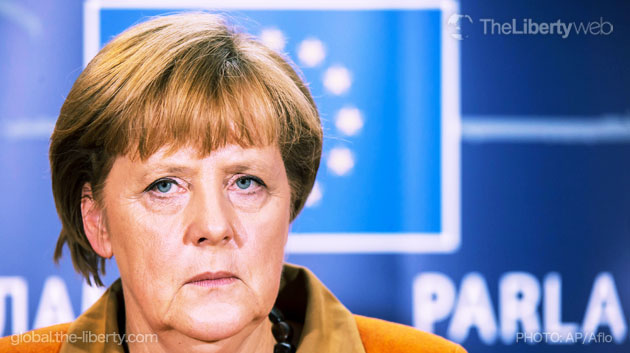A Bizarre Award of a Nobel Peace Prize to a European Union on the Verge of a Collapse
How long can Germany continue to support the EU? (Photograph: German Chancellor Angela Merkel) Photograph: AP/Aflo
The Nobel Peace Prize has been awarded to the European Union (EU). The reason is its ‘contribution to peace, reconciliation, democracy, and human rights development for over 60 years’. This is the first time that the prize has been won by a regional organization.
The EU is a politically and economically integrated body, comprised of 27 countries, and is based on the European Coal and Steel Community established in 1952. The idea of managing resources in collaboration gave birth to the organization. Since wars can be a source of resource shortages, the founders hoped to prevent great wars from breaking out,
In that sense, it could be argued that the EU has protected Europe from the menace of war.
Three Reasons Why the EU Award Seems Incongruous
However, there are three aspects that make this award seem misplaced.
Firstly, it is NATO (the North Atlantic Treaty Organisation) rather than the EU which has in fact contributed to peace throughout Europe. During the Cold War era between East and West, the existence of NATO as a Western military alliance prevented actual military conflict to a considerable extent. Historian Andrew Roberts mentioned NATO in his Bloomberg Column, “Nothing better represents this degradation of the Nobel Peace Prize than the ludicrous decision to award it to the EU”, and he declared that it was one of their most idiotic decisions.
Secondly, the EU has not yet been able to resolve its financial crisis. The EU’s economic crisis, which started with Greece, is far from getting back to normal, and it now shows signs of being spread to Spain and Italy. It is obvious that if financial revitalisation in these countries is forced, a collapse will occur. Yet, if countermeasures are postponed due to a lack of fiscal discipline, the overall reputation of the EU will be tarnished. Amid this unresolved dilemma, the EU economy itself is sinking slowly down into the abyss.
Thirdly, it is a fact that the EU itself has not been successful to begin with.
The President of Happy Science, Ryuho Okawa, drew attention to following (‘Compass to the Future’ in the September issue of Liberty):
“The EU now means a group of small and weak countries in which the weak seek support from the strong. Many more countries wish to join the EU, but I don’t think any good results can be achieved by weak countries getting together in order to help each other.”
In other words, the EU has become a structure for member countries to draw financial support from the relatively rich countries such as France and Germany. It has become all about the ‘subsidies’ rather than ‘cooperation’.
Furthermore, with the support from France and Germany dwindling, the EU is trying to elicit help from the top three economic giants, the U.S., China and Japan. It has become a question of how long a group of support seekers can keep their peace.
After all, the EU’s fundamental problem is “the lack of a real sense of national identity and the lack of patriotism from a global level perspective of justice” (‘Compass to the Future’ in the September issue of Liberty). Any organisation that lacks self-reliance and the spirit of independence will end up becoming a group that merely sponges. The world is not sweet enough to tolerate that for too long.
The EU Continues on its Path Towards Collapse
In fact, concern is being voiced about a global depression originating from the EU.
Professor Shunpei Takemori of Keio University wrote in his book, “In both the Great Depression of the 1930s and the current global financial crisis, the crisis first occurred in America before spreading to Europe and then expanding further.” He pointed out that there is a possibility that “the global economy will be hit by a recession no worse than that of the Great Depression” (Euro Bankruptcy – And Then Only Germany Remained).
Far from contributing to peace, the EU is on the verge of a collapse. It is quite likely that the clash of each member country’s ego (which is already materialising) could accelerate, and thus threaten the peace.
In that sense, the prize awarded to the EU might have been politically intended to halt the EU’s collapse rather than to reward its contribution to peace. Perhaps in order to preserve the EU, it might have been thought that there was no choice but to award it the Nobel Prize. Nevertheless, just as the Dalai Lama could not win his homeland back even after winning the Nobel Peace Prize, I believe the collapse of the EU can not be prevented despite it being awarded the Nobel Prize.
Related
- The Real Cause of the EU Financial Crisis
So, my conclusion is, the problem with the EU is a lack of genuine nationality and patriotism from the standpoint of world justice....



















